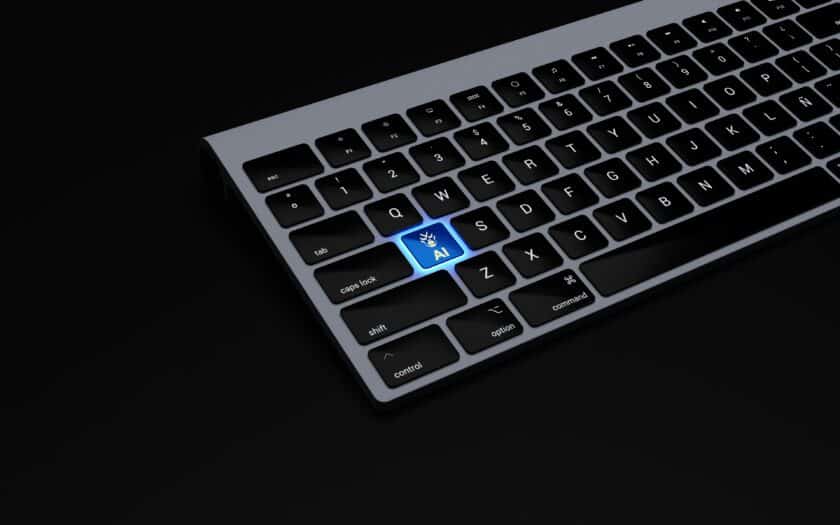When asked how it will celebrate its second birthday on Saturday 30 November, ChatGPT said there would be no cake or candles. That’s a shame given the profound impact this Generative AI (GenAI) chatbot has had on businesses and consumers, says Dan Coatsworth, investment analyst at AJ Bell.
The speed and scale at which GenAI has been embraced by companies and the general public is remarkable. It’s hard to remember another bit of technology which has hit the mainstream in such a short period of time.
Investors have made a lot of money from backing AI enablers over the past few years and there are now many examples of companies employing GenAI with great success.
It’s right that investors have asked when we’ll see positive financial returns from AI investments and we’re now getting a clearer picture of how the technology can improve earnings. Companies that can quantify the impact of using ChatGPT or other GenAI will set the bar for others to reach.
ChatGPT’s impact on jobs
ChatGPT has increased corporate productivity in a flash. One might assume it has been responsible for countless job losses, but many companies say its use has merely freed up staff to work on other roles rather than causing redundancies. Whether that’s the case in five years’ time remains to be seen.
It has helped to revolutionise customer service for many companies, particularly those with a large customer base such as telecoms and retail. Customers think they are talking to a real person, but in reality, they’re interacting with a chatbot.
Buy now, pay later group Klarna said in February that its AI assistant powered by ChatGPT’s owner OpenAI was doing the equivalent work of 700 full-time agents within its first month of deployment. Customers had their queries resolved faster and more accurately, leading to a 25% drop in repeat enquiries.
Retailers have been using GenAI to offer a more personalised service, such as making better suggestions for products that customers are likely to buy. For example, ASOS has used ChatGPT language models to develop a system that helps customers to discover new looks.
ChatGPT and other GenAI services are providing tangible benefits to companies but their impact on the world has only just begun.
ChatGPT set to challenge Google’s dominance
One of the most important developments is ChatGPT creating the first serious challenge to Google’s search empire in a long time.
While Google’s general purpose search engine is by far the dominant source of obtaining information online, ChatGPT recently introduced a new service that provides a difference approach to searching.
With ChatGPT, you make a request and receive a topline answer, together with links to relevant online sources. Rather than having to click through to different websites, ChatGPT effectively continues the conversation if you want more information so you can stay in one place and flick between multiple websites. It’s a more user-friendly way of obtaining and digesting information and brings something fresh to the search industry.
The fact Apple has incorporated ChatGPT into its new AI services is another blow to Google. Historically, Apple’s millions of electronic devices have been a good source of traffic to Google. Once Apple rolls out its AI services to phones and laptops, there is a chance that the ChatGPT-loaded Siri system becomes the first port of call for obtaining information.
GenAI on a broader scale
It’s not just ChatGPT which is taking the world by storm. There are other GenAI systems helping businesses such as improving engagement on social media platforms to extend session times and serve more advertisements. Legal contracts are being drawn up quickly and complex documents can be summarised in a flash.
GenAI is being used to predict market trends, customer behaviour or product demand. Repetitive tasks such as invoice processing are now being handled by computers, not people. Tasks that people have spent hours doing are now being completed in seconds.
Downsides to GenAI
There are some downsides to consider. More hackers are using the technology to cause harm, such as creating convincing phishing emails.
The pace of GenAI used in drug discovery and the banking industry has disappointed. The surge in demand for all things related to AI is also putting pressure on infrastructure providers, and there are fears that AI data centres are facing capacity constraints.
Furthermore, there are still concerns that the information served up by ChatGPT isn’t entirely accurate and mistakes are common in automated transcription services. Normally one could write these off as teething problems, yet expectations are very high with ChatGPT given how quickly it has advanced in its short life.
We’re only on the cusp of what GenAI is capable of doing and despite some negatives, it feels as if 2025 will see rapid adoption of the technology across multiple industries. Given what ChatGPT has achieved in only two years of existence, its impact after three years could be mind-blowing.
Main image: boliviainteligente-kECRXz0m42A-unsplash
































